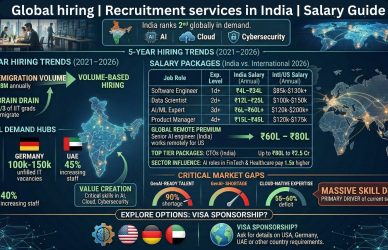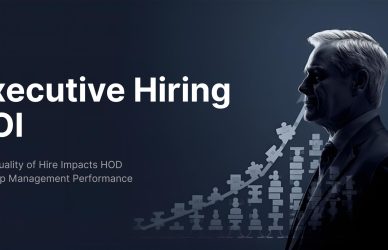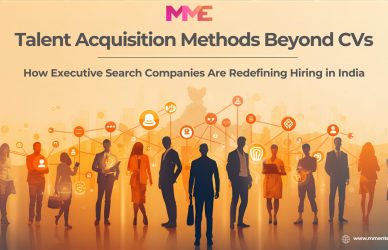Introduction: The Rising Significance of PEO Services in a Globalized Workforce
Unprecedented Growth of the PEO Industry
The Professional Employer Organization (PEO) industry is experiencing remarkable growth, fueled by the forces of globalization, technological advancements, and evolving labor laws. As businesses navigate the complexities of managing a diverse and geographically dispersed workforce, the demand for PEO services has reached unprecedented levels. In 2025, PEOs have solidified their role as strategic partners, offering tailored solutions to address workforce challenges while ensuring operational efficiency.
The Role of PEOs in Workforce Management
PEOs provide critical support in managing various aspects of workforce administration. By taking on responsibilities such as payroll processing, tax compliance, and employee benefits, PEOs enable businesses to focus on their core functions. This co-employment model ensures that administrative and legal obligations are efficiently handled, significantly reducing the burden on internal HR teams.
Navigating Complexities in Global Operations
As businesses expand across borders, they face an intricate web of local labor laws and regulations. PEOs bring unparalleled expertise in navigating these complexities, ensuring that organizations remain compliant and avoid costly legal pitfalls. Whether managing workforce requirements in India, Europe, or the Americas, PEOs act as trusted advisors in a dynamic regulatory environment.
The Impact of Remote Work and Employee Well-Being
The rise of remote work has transformed traditional workforce dynamics, making HR management more complex. PEOs play a vital role in managing remote teams by ensuring equitable benefits distribution and compliance with varying tax jurisdictions. Additionally, as organizations place greater emphasis on employee well-being, PEOs provide access to comprehensive benefits packages and wellness programs, fostering a supportive work environment that boosts productivity and retention.

Understanding PEO Services: A Comprehensive Overview
Beyond Basic HR Support
Professional Employer Organization (PEO) services extend far beyond conventional HR support. While traditional HR services often focus on individual functions, PEOs provide comprehensive solutions that integrate payroll management, employee benefits administration, compliance assurance, and talent acquisition strategies. This all-encompassing approach ensures businesses can streamline operations while focusing on growth.
The Co-Employment Model: A Strategic Partnership
At the core of PEO services lies the co-employment model, a unique arrangement that distinguishes PEOs from traditional HR outsourcing. In this model, the PEO becomes the employer of record for tax, compliance, and legal purposes, assuming responsibility for administrative functions such as payroll, benefits, and adherence to labor laws. Meanwhile, the client company retains control over daily operations, employee performance, and business strategy.
This partnership allows businesses to offload administrative burdens without relinquishing control over their workforce. It creates a dual framework where PEOs handle the complexities of compliance and employee administration, enabling the client company to operate efficiently.
Advanced HR Technology for Seamless Operations
One of the hallmarks of modern PEO services is their use of advanced HR technology platforms. These tools provide businesses with real-time access to critical data, including:
- Payroll Processing: Automated systems ensure accurate and timely salary disbursements, tax deductions, and reporting.
- Benefits Management: Platforms streamline the administration of employee benefits, from health insurance to retirement plans.
- Compliance Tracking: Technology helps businesses stay updated with evolving labor laws, minimizing the risk of non-compliance and penalties.
By leveraging these technologies, PEOs not only simplify HR processes but also offer valuable insights that aid in strategic decision-making.
The Holistic Approach of PEOs
Unlike traditional HR outsourcing, which often handles isolated tasks, PEOs adopt a holistic approach to workforce management. They integrate HR functions with strategic planning, offering services such as:
Competitive Compensation Packages
PEOs help design salary structures and benefits that attract and retain top talent in competitive markets. By benchmarking against industry standards, they ensure businesses offer appealing compensation while controlling costs.
Employee Engagement Programs
Enhancing employee satisfaction and productivity is a priority for PEOs. They assist in creating engagement initiatives, wellness programs, and training opportunities that align with organizational goals.
Compliance Assurance
Labor laws and tax regulations are constantly evolving, posing challenges for businesses. PEOs monitor these changes and ensure businesses remain compliant, reducing legal and financial risks.
Scalable Workforce Solutions
PEOs provide flexible solutions that adapt to the changing needs of businesses, whether scaling up operations or managing a remote workforce.
Key Differences Between PEOs and Traditional HR Outsourcing
While both PEOs and traditional HR outsourcing aim to streamline HR functions, their scope and execution differ significantly:
Co-Employment Advantage: PEOs assume employer-of-record responsibilities, offering comprehensive support for tax and compliance. Traditional HR outsourcing typically lacks this legal framework.
Integration vs. Isolation: PEOs provide end-to-end solutions that integrate payroll, benefits, and compliance, whereas HR outsourcing often handles individual tasks.
Strategic Focus: PEOs contribute to workforce planning and employee engagement, ensuring long-term benefits. Traditional outsourcing may not provide the same level of strategic involvement.
Technology-Driven Services: Modern PEOs leverage advanced platforms for seamless service delivery, which may not always be a feature of traditional outsourcing providers.
The Value PEOs Bring to Businesses
By partnering with a PEO, businesses gain access to a team of experts dedicated to optimizing HR processes. This collaboration offers multiple benefits, including:
- Operational Efficiency: Streamlined processes save time and reduce administrative overhead.
- Cost Reduction: PEOs eliminate the need for a full in-house HR team, offering cost-effective solutions.
- Enhanced Employee Satisfaction: Competitive benefits and engagement initiatives improve employee morale and retention.
- Risk Mitigation: PEOs ensure compliance with labor laws, minimizing legal and financial risks.
In 2025, PEOs have become indispensable partners for businesses looking to thrive in an increasingly global and complex workforce environment. Their ability to integrate administrative support with strategic workforce management has made them the preferred choice for companies of all sizes.

Key Benefits of PEO Services in 2025
Compliance Management
The global regulatory landscape is increasingly complex and ever-changing, making compliance a significant challenge for businesses. PEOs serve as experts in local and international labor laws, helping organizations navigate the intricacies of compliance requirements. From managing employment contracts and tax filings to ensuring adherence to statutory benefits, PEOs reduce the risk of non-compliance, which can lead to hefty fines and legal complications.
For example, a U.S.-based company expanding into India partnered with a PEO to manage compliance with local labor laws, including Provident Fund contributions and Employee State Insurance. The PEO ensured all processes were compliant, avoiding penalties and ensuring seamless operations in the new market.
Cost Efficiency
Outsourcing HR functions to a PEO can significantly lower operational costs. By leveraging their economies of scale, PEOs negotiate group rates for employee benefits, insurance, and other HR services, which are typically unattainable for small and medium-sized enterprises (SMEs).
Additionally, PEOs streamline HR processes, reducing administrative overhead and freeing up resources for core business activities. For instance, a small manufacturing firm partnered with a PEO to handle payroll and benefits administration. The cost savings enabled the firm to reinvest in machinery upgrades, boosting productivity and profitability.
Enhanced Employee Benefits
In a competitive talent market, offering attractive employee benefits is crucial. PEOs provide access to comprehensive benefits packages, including health insurance, retirement plans, wellness programs, and training opportunities. These benefits are typically on par with those offered by large enterprises, making it easier for smaller companies to attract and retain top talent.
Consider a small tech startup aiming to hire skilled developers. By partnering with a PEO, the startup offered enterprise-level benefits such as premium health plans and retirement savings options. This not only improved employee satisfaction but also positioned the company as an employer of choice in a competitive labor market.
Scalability
As businesses expand domestically or internationally, managing workforce growth can be daunting. PEOs simplify scalability by handling payroll, compliance, and employee onboarding efficiently. This allows businesses to adapt to changing workforce needs without administrative bottlenecks.
For example, a mid-sized e-commerce company entering new markets in Southeast Asia partnered with a PEO to manage workforce expansion. The PEO ensured seamless onboarding of employees across multiple countries while adhering to local labor laws and tax regulations. This enabled the company to scale quickly without disrupting its operations.
Focus on Core Competencies
Managing HR tasks such as payroll, benefits, and compliance can consume significant time and resources. By outsourcing these functions to a PEO, businesses can focus on strategic growth areas like innovation, customer engagement, and market expansion.
For instance, a boutique marketing agency found itself spending excessive time on HR administration, hindering its ability to pursue new clients. Partnering with a PEO allowed the agency to delegate HR tasks, enabling its leadership to focus on securing high-value contracts and enhancing creative services.

Real-World Examples Demonstrating PEO Benefits
Case Study: Small Tech Startup
A tech startup with a team of 10 struggled to attract skilled software developers due to limited resources for competitive compensation packages. After partnering with a PEO, the startup gained access to enterprise-level health insurance, retirement plans, and wellness programs. This elevated its appeal in a tight labor market, helping it recruit top-tier talent and scale its operations.
Case Study: Global Expansion for an E-commerce Firm
An e-commerce company with plans to expand into three new international markets faced challenges in managing compliance, payroll, and tax regulations across jurisdictions. The PEO handled all administrative tasks, ensuring legal compliance in each country. This allowed the company to focus on tailoring its products and services to new audiences, resulting in successful market entry.
Case Study: Cost Savings for a Manufacturing Firm
A small manufacturing business was spending excessive time and resources managing in-house HR functions. By outsourcing to a PEO, the company reduced its administrative overhead by 25% and negotiated better rates for employee health benefits. The savings were reinvested into purchasing new equipment, enhancing operational efficiency.
Tangible Advantages of PEO Services
- Improved Efficiency: Automation and expert handling of HR tasks streamline operations, reducing delays and errors.
- Cost-Effective Solutions: Group benefits and reduced administrative burdens lower overall HR expenditures.
- Talent Retention: Competitive benefits packages boost employee satisfaction, reducing turnover rates.
- Reduced Risks: Compliance expertise ensures businesses avoid legal penalties and reputational damage.
- Rapid Market Entry: Support for workforce onboarding and compliance accelerates entry into new markets.
In 2025, the role of PEOs as strategic partners continues to grow, helping businesses achieve operational efficiency, enhance workforce satisfaction, and scale seamlessly in an increasingly competitive and globalized marketplace.

The Role of Technology in PEO Services
AI Integration: Personalized Employee Experiences
The integration of artificial intelligence (AI) in PEO services has transformed how businesses manage their workforce. AI-powered platforms enable PEOs to deliver personalized employee experiences, such as tailored benefits packages and customized learning opportunities. By analyzing employee preferences and performance data, these platforms recommend benefits and training that align with individual needs and career goals, enhancing employee satisfaction and retention.
For instance, a leading PEO implemented an AI-driven benefits system for a global tech company, allowing employees to choose from a dynamic range of options based on their preferences. The result was a significant boost in engagement and retention rates, demonstrating the power of AI in fostering a positive work environment.
Automation: Streamlining Payroll and Compliance
Automation has become a cornerstone of efficiency in the PEO industry. Tasks such as payroll processing, tax compliance, and benefits administration, which were once prone to manual errors, are now automated to ensure accuracy and timeliness.
PEOs leverage automated systems to manage complex payroll operations, including multi-country taxation and currency exchanges, with minimal human intervention. Additionally, automated compliance tools monitor changes in labor laws and regulations, ensuring businesses remain compliant without constant manual updates.
A case study highlights how a mid-sized retail chain partnered with a tech-savvy PEO to automate its payroll across multiple locations. The PEO’s automation tools reduced payroll errors by 40% and ensured compliance with diverse regional regulations, saving the company significant time and resources.
Predictive Analytics: Enhancing Workforce Planning
The use of predictive analytics is revolutionizing workforce management in 2025. PEOs utilize advanced data analytics to identify workforce trends, optimize talent acquisition, and plan for future needs. By analyzing historical data and market trends, predictive models provide insights into potential skill gaps, employee turnover risks, and optimal hiring strategies.
For example, a manufacturing firm worked with a PEO that employed predictive analytics to forecast labor shortages during peak production seasons. The PEO’s data-driven approach allowed the firm to proactively recruit skilled workers, ensuring smooth operations and preventing costly production delays.
Cloud-Based Systems: Real-Time Accessibility and Collaboration
Cloud technology has redefined the way PEOs interact with their clients. Cloud-based systems provide real-time access to HR data, fostering collaboration and transparency between businesses and PEOs. Clients can monitor payroll, benefits, and compliance updates through centralized dashboards, enabling better decision-making and accountability.
These systems also enhance scalability, allowing businesses to manage remote teams and global workforces effortlessly. For instance, a multinational consulting firm partnered with a PEO offering a cloud-based HR platform, enabling seamless data sharing and efficient management of employees across multiple continents.
AI-Driven Recruitment Tools: Identifying Top Talent
Recruitment is a critical aspect of workforce management, and PEOs are leveraging AI-driven tools to enhance the hiring process. These tools use machine learning algorithms to analyze resumes, match candidates with job requirements, and predict their potential for success in specific roles.
For example, a healthcare organization partnered with a PEO that utilized AI-driven recruitment software. The technology identified top candidates by analyzing qualifications, experience, and personality traits, reducing time-to-hire by 30%. This efficient recruitment process allowed the organization to focus on delivering quality healthcare services while ensuring a strong talent pipeline.
Case Studies: Technology-Driven Success
Retail Industry Transformation
A retail chain with locations in multiple states partnered with a tech-savvy PEO to automate payroll and compliance management. The PEO’s integration of automation tools resulted in error-free payroll processing and real-time compliance updates, reducing penalties and enhancing operational efficiency.
Global Workforce Management
A global IT services provider used a PEO’s cloud-based platform to manage its distributed workforce. The system provided centralized access to payroll, benefits, and compliance data, enabling seamless coordination across countries and boosting employee satisfaction.
Enhanced Recruitment for Startups
A startup in the e-commerce sector collaborated with a PEO to implement AI-driven recruitment tools. By analyzing candidate profiles and market trends, the PEO helped the startup identify top talent quickly, positioning the company for rapid growth in a competitive market.
Technology has become a game-changer for PEO services in 2025, enabling businesses to achieve operational excellence and strategic growth. From AI and automation to predictive analytics and cloud-based systems, PEOs are leveraging cutting-edge innovations to provide efficient, data-driven solutions. Through personalized employee experiences, streamlined processes, and actionable insights, technology-driven PEOs are reshaping the future of workforce management.

PEO Services in a Remote and Hybrid Work Era
Navigating Compliance in a Dispersed Workforce
The rise of remote and hybrid work has created significant challenges in complying with labor laws across multiple jurisdictions. PEOs simplify compliance management by ensuring businesses adhere to regional tax regulations, labor laws, and benefits requirements for their dispersed teams.
For example, a U.S.-based technology company with employees working remotely in Europe partnered with a PEO to manage compliance across different countries. The PEO handled payroll tax filings, social security contributions, and contract management in line with local regulations, ensuring seamless operations and mitigating risks of non-compliance.
Enhancing Employee Engagement in Remote Settings
Remote work has redefined how organizations foster engagement and maintain a sense of belonging among employees. PEOs support businesses in developing remote employee engagement strategies, utilizing virtual tools and programs to boost morale and productivity.
Virtual Team-Building Activities: PEOs organize activities such as online workshops, virtual escape rooms, and trivia sessions to build camaraderie among remote employees.
Wellness Programs: Many PEOs offer access to wellness initiatives, including online fitness classes, mental health resources, and stress management programs, tailored to remote employees’ needs.
Communication Tools: PEOs implement platforms like Slack, Microsoft Teams, and Zoom to enhance collaboration and foster open communication in virtual environments.
For instance, a global consulting firm partnered with a PEO to introduce a virtual wellness program, including yoga classes and mindfulness sessions, which significantly improved employee satisfaction and reduced burnout rates.
Streamlining Virtual Onboarding Processes
Onboarding remote employees poses unique challenges, such as integrating them into the company culture and ensuring they are equipped with the necessary tools and resources. PEOs leverage technology to streamline virtual onboarding, ensuring a smooth transition for new hires.
Key elements of virtual onboarding offered by PEOs include:
Digital Onboarding Portals: PEOs provide centralized platforms where new employees can access onboarding materials, complete documentation, and learn about company policies.
Welcome Kits: Many PEOs coordinate the delivery of physical welcome kits, including branded merchandise and essential equipment, to new hires’ locations.
Mentorship Programs: Virtual mentoring initiatives connect new employees with experienced team members to foster guidance and support.
A case study highlights how a multinational e-commerce company partnered with a PEO to onboard over 50 remote employees across five countries. The PEO’s virtual onboarding platform enabled seamless communication, compliance with regional regulations, and integration into the company culture, ensuring new hires were productive from day one.
Addressing Challenges in Hybrid Work Models
Hybrid work, where employees alternate between remote and in-office setups, adds another layer of complexity to workforce management. PEOs offer tailored solutions to address these challenges, such as:
Hybrid Work Policies: PEOs assist businesses in creating and implementing hybrid work policies that align with labor laws while ensuring flexibility for employees.
Workplace Safety Compliance: For employees returning to the office, PEOs help businesses meet health and safety requirements, including COVID-19 protocols and ergonomic workspace setups.
Payroll Coordination: PEOs manage payroll for hybrid employees, considering different tax implications for remote and on-site workdays.
For example, a fintech company worked with a PEO to establish a hybrid work policy that complied with both local labor laws and international tax regulations. The PEO also coordinated workspace allowances for remote days and ensured compliance with safety standards for in-office work.
Successful Remote Workforce Management Strategies
PEOs have developed innovative strategies to help businesses thrive in the remote and hybrid work era:
Customized Benefits for Remote Employees: A software development firm partnered with a PEO to offer benefits like internet reimbursements, home office stipends, and flexible work hours, improving employee satisfaction and retention.
Global Payroll Integration: A media agency utilized a PEO’s global payroll platform to ensure accurate and timely salary disbursements for remote employees across multiple countries.
Remote Performance Management: A healthcare startup collaborated with a PEO to implement performance tracking tools, providing managers with real-time insights into employee productivity and engagement.
By addressing the unique challenges of remote and hybrid work, PEOs empower businesses to adapt to this evolving landscape, ensuring compliance, engagement, and seamless operations across a dispersed workforce.

Industry-Specific Applications of PEO Services
Technology Sector
The technology industry thrives on innovation and a global talent pool, making workforce management both dynamic and challenging. PEOs play a crucial role in addressing the unique needs of tech companies by offering:
Global Talent Acquisition: PEOs simplify the process of hiring remote developers, engineers, and IT professionals across borders, ensuring compliance with local labor laws.
Intellectual Property Protection: PEOs assist in drafting contracts that secure intellectual property rights, a critical concern in technology-driven businesses.
Data Security and Compliance: With the increasing emphasis on data privacy, PEOs ensure compliance with regulations like GDPR and CCPA, reducing legal risks for tech companies.
For example, a growing SaaS company partnered with a PEO to hire developers in Europe while ensuring compliance with GDPR. The PEO’s expertise streamlined the hiring process, enabling the company to expand its team and focus on product development without regulatory concerns.
Healthcare Sector
The healthcare industry is heavily regulated, with stringent compliance requirements and specialized workforce needs. PEOs cater to the healthcare sector by providing tailored solutions, including:
Credentialing and Licensing: PEOs ensure that healthcare professionals meet the necessary certifications and licensing requirements for their roles.
Regulatory Compliance: With ever-changing regulations in healthcare, PEOs stay updated on laws like HIPAA, ensuring that practices remain compliant and avoid penalties.
Staffing Support: From nurses to administrative staff, PEOs assist in recruiting and onboarding skilled professionals efficiently.
A hospital system facing a nursing shortage worked with a PEO to recruit qualified professionals from overseas. The PEO handled credential verification, visa processing, and onboarding, ensuring the new hires met regulatory standards and were ready to work immediately.
Manufacturing Sector
The manufacturing industry often involves large workforces, complex labor laws, and safety regulations. PEOs address these challenges by providing customized services, such as:
- Workforce Safety and Compliance: PEOs ensure compliance with OSHA standards and other workplace safety regulations, reducing accidents and legal risks.
- Shift Scheduling and Labor Management: PEOs assist in managing complex shift patterns and overtime compliance, ensuring fair practices and employee satisfaction.
- Cost Management: PEOs negotiate better insurance rates and manage payroll efficiently, reducing operational costs for manufacturing firms.
For example, a mid-sized manufacturing company partnered with a PEO to address labor shortages and compliance challenges. The PEO implemented efficient scheduling tools and safety training programs, improving workforce productivity and reducing accidents by 20%.
Retail and E-commerce Sector
Retail and e-commerce businesses face fluctuating workforce demands and seasonal hiring needs. PEOs offer tailored solutions to address these challenges, including:
- Flexible Workforce Solutions: PEOs manage seasonal hiring, ensuring businesses have adequate staff during peak periods.
- Employee Benefits Administration: PEOs provide competitive benefits packages to retain employees in an industry known for high turnover rates.
- Payroll and Compliance Management: With employees spread across multiple locations, PEOs handle payroll and tax compliance seamlessly.
A leading e-commerce platform relied on a PEO to scale its workforce during the holiday season. The PEO managed onboarding for over 500 temporary employees and ensured payroll accuracy, allowing the platform to meet increased demand efficiently.
Financial Services Sector
The financial services industry is highly regulated, requiring meticulous compliance and employee management. PEOs provide essential support through:
- Regulatory Compliance: PEOs ensure adherence to financial regulations, including anti-money laundering (AML) and data security laws.
- Employee Training: PEOs organize compliance training programs to keep employees updated on the latest financial regulations.
- Specialized Talent Acquisition: PEOs assist in recruiting financial analysts, accountants, and compliance officers with the right expertise.
A brokerage firm expanded its operations to Asia with the help of a PEO. The PEO managed the hiring of compliance officers and ensured adherence to local financial laws, enabling the firm to operate smoothly in new markets.
Case Studies Highlighting PEO Success
Tech Startup Expansion
A startup developing AI-powered software partnered with a PEO to hire remote engineers in three countries. The PEO managed local labor laws, payroll, and benefits, allowing the startup to scale globally without setting up international entities.
Healthcare Recruitment
A healthcare organization partnered with a PEO to address a staffing crisis during the pandemic. The PEO recruited nurses and administrative staff while ensuring all new hires met regulatory standards, enabling the organization to continue operations without interruptions.
Manufacturing Safety Improvements
A manufacturing firm struggling with high accident rates collaborated with a PEO to implement safety training and compliance programs. The result was a safer workplace and a 30% reduction in worker compensation claims.
E-commerce Scalability
An e-commerce retailer facing fluctuating demand used a PEO to manage seasonal hires. The PEO’s support ensured timely onboarding and payroll management, allowing the retailer to meet peak-season demands seamlessly.
By addressing the unique needs of different industries, PEOs have established themselves as indispensable partners, driving efficiency, compliance, and workforce satisfaction.

The Global Impact of PEO Services in 2025
Simplifying Global Expansion
In an increasingly interconnected world, businesses are expanding across borders to tap into new markets. However, managing international operations comes with complex challenges, including compliance with local laws, cultural integration, and administrative burdens. PEOs play a critical role in simplifying global expansion by handling these intricacies on behalf of businesses.
Legal Compliance: PEOs ensure adherence to local labor laws, managing work permits, employee visas, and regulatory requirements.
Entity-Free Expansion: Businesses can hire talent in foreign markets without establishing a local legal entity, saving time and resources.
For example, a U.S.-based software company partnered with a global PEO to hire developers in Japan. The PEO managed all legal and regulatory aspects, enabling the company to operate in Japan without setting up a subsidiary.
Navigating Multi-Currency Payroll Systems
Managing payroll across multiple countries can be daunting, given the variations in tax laws, currencies, and payment systems. PEOs streamline international payroll operations, ensuring timely and accurate salary disbursements while adhering to local tax regulations.
- Multi-Currency Payments: PEOs handle salary payments in local currencies, mitigating risks associated with exchange rate fluctuations.
- Tax Compliance: From filing taxes to managing social security contributions, PEOs ensure compliance with the tax codes of each country.
A multinational e-commerce company working with a PEO successfully managed payroll for employees in Europe, Asia, and Africa. The PEO’s advanced payroll platform automated payments in over 10 currencies, ensuring accuracy and compliance across regions.
Addressing Cultural Differences
Expanding globally often means navigating diverse cultural practices and workplace norms. PEOs provide cultural training and support to help businesses foster better collaboration among international teams.
- Cultural Sensitivity Training: PEOs offer programs that educate employees about cultural norms, communication styles, and etiquette in different regions.
- Conflict Resolution: By understanding cultural nuances, PEOs assist in resolving workplace conflicts that may arise due to differences in perspectives.
A European manufacturing firm entering the Middle Eastern market partnered with a PEO to onboard employees. The PEO provided cultural training, helping the organization align with local business practices and build stronger relationships with its workforce.
Enhancing Cross-Border Collaboration
Global workforces face challenges in maintaining seamless collaboration across time zones and locations. PEOs implement tools and practices to enhance communication and teamwork in distributed teams.
Technology Integration: PEOs provide access to collaboration tools such as Slack, Microsoft Teams, and Zoom, fostering real-time communication.
Localized HR Policies: Tailored HR policies ensure that cross-border teams operate cohesively while respecting local regulations and customs.
For instance, a global logistics company used a PEO to manage a workforce spread across five continents. The PEO introduced integrated communication platforms and standardized HR processes, significantly improving efficiency and team cohesion.
Real-World Examples of Global PEO Success
Tech Startup Expansion
A U.S.-based tech startup sought to hire skilled engineers in South Korea and Germany without establishing local offices. By partnering with a global PEO, the company onboarded employees seamlessly, managed payroll in multiple currencies, and ensured compliance with local laws, accelerating its global growth.
Healthcare Workforce Management
A multinational healthcare organization leveraged a PEO to recruit and manage medical professionals in the Middle East. The PEO handled licensing, visa processing, and compliance, enabling the company to focus on delivering quality healthcare services.
Retail Market Entry
An Australian retail chain entering the Indian market used a PEO to onboard employees, handle multi-currency payroll, and provide cultural training. The partnership enabled the company to build an efficient local team while maintaining compliance with India’s labor laws.
Driving Competitive Advantage
By managing the complexities of global workforce operations, PEOs empower businesses to compete effectively on a global scale. From navigating legal landscapes to fostering cultural integration, PEOs enable organizations to focus on innovation and market expansion while ensuring operational efficiency. Their role as strategic partners in 2025 underscores the indispensable value they bring to businesses venturing into international markets.

Challenges and Limitations of PEO Services
Finding the Right PEO Partner
One of the most significant challenges in adopting PEO services is selecting the right PEO partner that aligns with a company’s needs, culture, and goals. With numerous PEO providers available, businesses must carefully evaluate potential partners to ensure compatibility.
Key considerations when choosing a PEO include:
- Industry Expertise: Ensure the PEO has experience in your industry and understands its unique workforce requirements.
- Service Scope: Verify that the PEO offers the specific services your business needs, such as compliance management, payroll, or employee benefits.
- Reputation and Track Record: Research client reviews, testimonials, and case studies to assess the PEO’s reliability and performance.
For example, a technology startup may prioritize a PEO with expertise in hiring remote developers and managing intellectual property rights, while a healthcare organization might focus on credentialing and regulatory compliance.
Cost Considerations
While PEO services can deliver significant cost savings in the long run, the initial costs may be a concern, particularly for small businesses and startups operating on tight budgets.
Common cost-related challenges include:
- Service Fees: PEOs typically charge a percentage of payroll or a flat fee per employee, which may seem high for smaller organizations.
- Value Perception: Businesses may initially struggle to quantify the value of services like compliance assurance or employee benefits administration.
However, the long-term benefits often outweigh these costs. For instance, by ensuring compliance and reducing administrative burdens, PEOs help businesses avoid legal penalties and operational inefficiencies, ultimately saving money.
Strategies to Mitigate Costs:
- Compare multiple PEO providers to find one that fits your budget and service requirements.
- Evaluate the ROI by calculating potential cost savings from reduced HR overhead and compliance risks.
- Aligning with Company Culture and Goals
Another limitation of PEO services is the potential for misalignment with a company’s culture and strategic objectives. PEOs handle critical aspects of employee management, and any disconnect between the PEO and the company’s values can lead to dissatisfaction among employees or hinder the company’s goals.
For example, a company with a highly flexible and informal culture may face challenges if the PEO operates with rigid policies or procedures. Similarly, a business aiming to emphasize employee engagement might feel underserved if the PEO’s offerings in this area are limited.
Strategies for Alignment:
- Communicate your company’s culture, values, and goals clearly during the selection process.
- Collaborate with the PEO to tailor policies and practices that reflect your organizational ethos.
- Establish regular check-ins to ensure the partnership aligns with evolving business needs.
- Overcoming Communication Gaps
Efficient communication is crucial for the success of any PEO partnership. Poor communication protocols can lead to misunderstandings, delays, or inconsistencies in service delivery.
Challenges include:
- Unclear Expectations: Businesses may face issues if roles and responsibilities are not clearly defined.
- Lack of Real-Time Updates: Inadequate access to data or delayed communication from the PEO can disrupt operations.
Strategies for Improving Communication:
- Set clear expectations and define roles and responsibilities at the outset of the partnership.
- Use technology platforms provided by the PEO for real-time updates and seamless collaboration.
- Schedule regular meetings to address concerns and evaluate the effectiveness of the services.
- Continuously Evaluating the Partnership
A common oversight is failing to continuously evaluate the PEO partnership after implementation. As businesses grow and evolve, their workforce needs may change, necessitating adjustments in the PEO’s services.
Challenges in Evaluation:
- Businesses may not establish metrics to measure the success of the PEO’s services.
- A lack of feedback mechanisms can prevent identifying areas for improvement.
- Strategies for Effective Evaluation:
Establish key performance indicators (KPIs) to measure the success of the PEO partnership, such as compliance rates, employee satisfaction, and cost savings.
Gather regular feedback from employees and managers to assess the impact of PEO services.
Review the partnership periodically to ensure it continues to meet your business’s evolving needs.
While PEO services offer numerous advantages, businesses must navigate challenges such as selecting the right partner, managing costs, and ensuring alignment with their goals. By adopting proactive strategies and maintaining open communication, companies can maximize the benefits of their PEO partnerships while addressing potential limitations effectively.

The Future of PEO Services: Trends and Predictions
The Rise of Niche PEOs
As businesses seek more specialized support, niche PEOs are expected to gain traction in the coming years. These PEOs focus on specific industries or services, providing tailored solutions to address unique challenges.
Industry-Specific Expertise: Niche PEOs will cater to sectors such as healthcare, technology, and manufacturing, offering specialized services like credentialing, compliance, and workforce safety management.
Service Specialization: PEOs focusing on remote work, diversity and inclusion, or sustainability will emerge to address evolving workforce needs.
For instance, a niche PEO specializing in technology might provide enhanced intellectual property protections and data compliance services, giving businesses in this sector a competitive edge.
The Integration of AI and Machine Learning
The adoption of artificial intelligence (AI) and machine learning is poised to transform the PEO industry. These technologies will enhance decision-making, streamline operations, and enable proactive workforce management.
Predictive Workforce Analytics: AI will analyze historical and real-time data to predict trends such as employee turnover, skill shortages, and performance outcomes, enabling PEOs to provide proactive solutions.
Automated Processes: Machine learning will further automate payroll, compliance tracking, and benefits administration, reducing errors and increasing efficiency.
Enhanced Employee Experience: AI-powered platforms will personalize employee benefits, training opportunities, and career development plans, boosting engagement and retention.
For example, a PEO using AI to analyze workforce data might recommend tailored wellness programs or predict upcoming compliance changes, allowing businesses to stay ahead of challenges.
The Growing Focus on Employee Wellness
As employee well-being becomes a cornerstone of organizational success, PEOs will prioritize wellness programs to support mental health, work-life balance, and overall satisfaction.
Mental Health Initiatives: PEOs will introduce programs such as virtual counseling, mindfulness workshops, and access to mental health resources.
Flexible Work Solutions: Support for hybrid and remote work models will include benefits like home office stipends, flexible schedules, and ergonomic resources.
Holistic Wellness Programs: Wellness packages will expand to include fitness memberships, nutritional counseling, and financial planning support.
For instance, a PEO working with a global e-commerce company may implement wellness initiatives tailored to remote employees, such as online fitness classes and stress management programs, resulting in higher employee productivity and satisfaction.
Enhanced Use of HR Technology Platforms
HR technology platforms will become increasingly sophisticated, offering seamless integration and real-time collaboration between PEOs and their clients.
Cloud-Based Solutions: PEOs will use cloud technology to provide centralized access to payroll, benefits, and compliance data, enabling businesses to make informed decisions quickly.
Mobile Accessibility: Employees will benefit from mobile apps that offer access to pay stubs, benefits information, and training materials, enhancing transparency and convenience.
Data-Driven Insights: Advanced analytics tools will provide businesses with actionable insights to optimize workforce management and improve HR strategies.
A multinational corporation, for example, might rely on a PEO’s cloud-based HR platform to manage compliance and payroll for its global workforce, ensuring efficiency and accuracy.
Predictions for the Next Decade
Global Expansion of PEOs: With businesses increasingly operating across borders, PEOs will expand their international services, providing support for diverse workforces in emerging markets.
Focus on ESG (Environmental, Social, and Governance): PEOs will align with businesses’ sustainability goals, offering solutions that prioritize diversity, equity, and environmental responsibility.
Support for Gig and Freelance Workforces: As the gig economy continues to grow, PEOs will develop specialized offerings for managing freelance and contract workers, including compliance and benefits administration.
AI-Driven Recruitment: PEOs will use AI tools to identify top talent efficiently, helping businesses navigate competitive labor markets.
Strategic Workforce Planning: PEOs will position themselves as strategic partners, guiding businesses through workforce transformations driven by automation, AI, and changing employee expectations.
Real-World Example: A Forward-Thinking PEO
A PEO specializing in the healthcare industry recently introduced a predictive analytics platform that identifies staffing shortages based on patient demand trends. By providing this data to its clients, the PEO enables hospitals and clinics to recruit proactively, ensuring uninterrupted patient care and operational efficiency.
Through the adoption of emerging technologies, a focus on wellness, and industry-specific expertise, PEOs are poised to become essential partners in shaping the future of work, adapting to the dynamic needs of businesses and employees worldwide.

Conclusion: Why PEO Services are Indispensable in 2025
Optimizing Workforce Management
In 2025, businesses face a dynamic and evolving workforce landscape, requiring innovative strategies to manage employees effectively. Professional Employer Organizations (PEOs) excel in streamlining workforce management through services such as payroll processing, benefits administration, and compliance assurance. By handling these critical functions, PEOs free up valuable resources, enabling companies to focus on strategic initiatives such as innovation and market expansion.
Ensuring Compliance
Navigating the complexities of local and international labor laws is a significant challenge for businesses, particularly those operating across borders. PEOs act as compliance experts, staying updated with regulatory changes and ensuring adherence to tax laws, labor regulations, and workplace safety standards. This reduces the risk of legal penalties and provides businesses with peace of mind in a highly regulated environment.
Driving Business Success
PEOs have evolved into strategic partners, empowering businesses to achieve sustainable growth. Through tailored solutions, advanced technology, and a focus on employee well-being, PEOs help organizations enhance productivity, attract and retain top talent, and build resilient teams. From niche PEOs addressing specific industry needs to AI-driven platforms providing actionable insights, PEOs are at the forefront of enabling business success in an increasingly globalized world.
The Transformative Role of PEOs
In 2025, PEOs are no longer just service providers—they are transformative partners that adapt to the unique needs of businesses. By addressing workforce challenges, leveraging cutting-edge technology, and fostering a culture of compliance and engagement, PEOs empower organizations to thrive in competitive markets.
Encouragement to Partner with PEOs
For businesses aiming to achieve sustainable growth and operational excellence, partnering with a PEO is a strategic decision. Whether managing a remote workforce, expanding internationally, or optimizing HR functions, PEOs offer indispensable support that drives efficiency, mitigates risks, and positions companies for long-term success.




